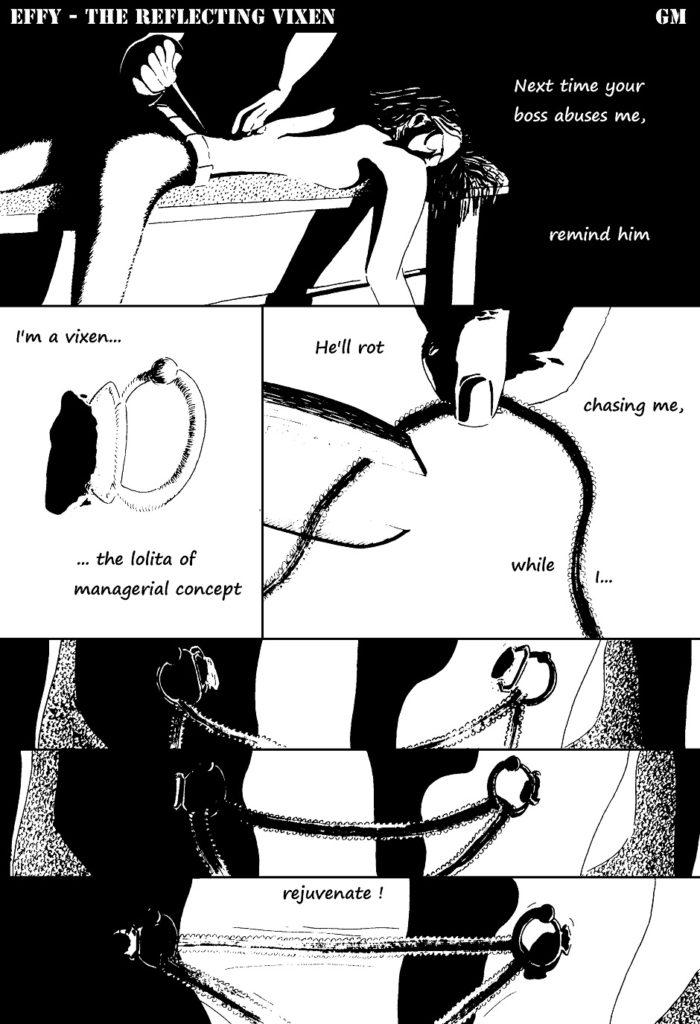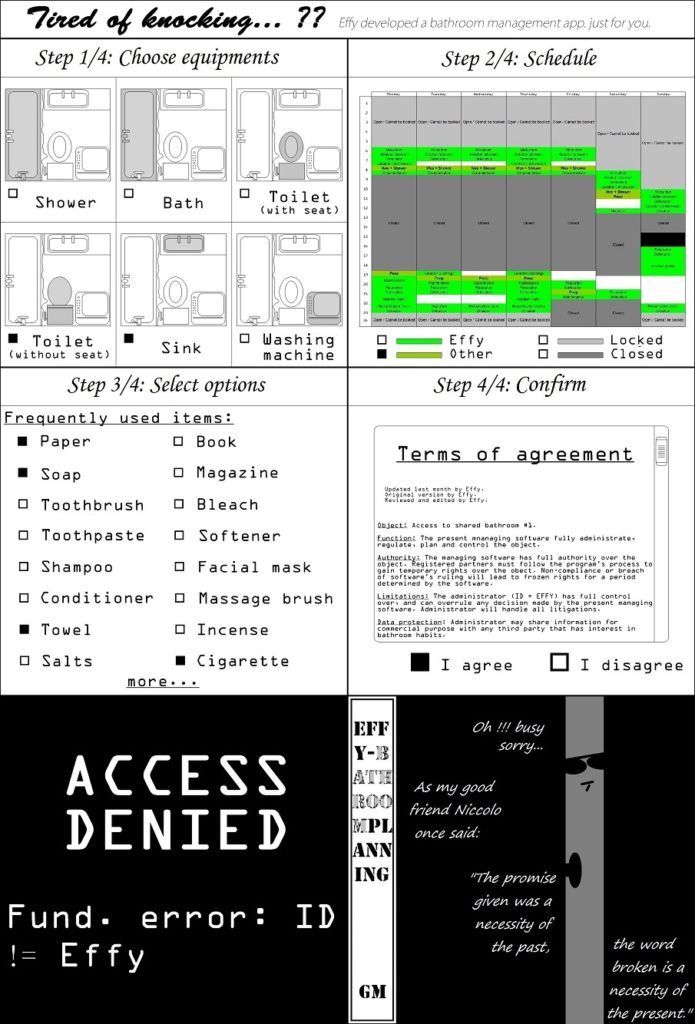Batch five with four new episodes from Effy – The Living Efficiency. Bathroom planning, cooking recipe, ageing and a lover’s vengeance, life Effy style.
Don’t miss his weekly updates on Effy’s own page or through Tapas!
What on earth is the “Reflecting Vixen” about? It’s about the concept payback!
Organizations (and people in them) like to assess everything using “efficiency”. Workers’ efficiency, energy’s efficiency, wages’ efficiency, time’s efficiency, policies’ efficiency, and so on. The word itself is now a go-to answer for managers and self-called leaders to solve all types of problems.
I often ask them (as I always ask finance controllers working with me): what do they mean by efficiency? Answers are always surprising, some even unable to say anything, despite using the concept to manage their teams on daily basis. To be fair, researchers are not that clear either. Some scholars have been debating about efficiency’s benefits, without a clear definition, pages after pages (some articles from Study Mode here).
In the business world, the concept is now becoming nothing more than a stick, to balance hypothetical carrot.
But Effy is done defining herself (see previous episode). She is an endless concept, changing form depending on the challenges we face. That being said, she should never be used as an excuse. Not for arbitrary evaluation, or decision, otherwise beware the reflecting vixen!
As we pursue efficiency, never forget the peculiar nature of this concept: attractive & promising, yet cunning, demanding and forever unreachable.
When Max Kwoa asked me my view on his book “Hell lingering within” and do a featuring, two concepts came out: time and efficiency.
And so, “Swallowed by time, Effy remains” came out. So this is my take on the ageing effect. Somehow, this is downright on the line of previous episodes continuing education. With time, efficiency becomes the alpha and omega of innocent dreams. The vision is feeding from inner insecurities, eating all out, and leaving an empty shell behind.
Whether you like this episode or not, please do go check Max Kwoa’s book, a bit graphic at times, but worth checking out and available almost everywhere it seems, Amazon Kindle, Overdrive, Smashwords, and what not…
The recipe to keep good relationship with your partners, it’s all about the sauce really! … and LaoGanMa (or the “Godmother”) is the best according to my wife, but I tend to believe her.
Moral agreement and promise are a very effective way to lead, motivate, or coerce other people into performing a task, without doing anything in return. Effy got that right, adding this approach to her argumentation or negotiation toolbox.
“Meeting of the minds” is what best describe an agreement. Agreement consists of an offer made and accepted between two parties to perform tasks. Unlike contract, agreements are not legally binding (list of other differences from Key Differences at this link), and only engage the morality of parties to perform their side of the obligation. So promises and moral agreements are bound by the trust of parties’ reciprocal morality.
Here lies the loophole, since there are no generally accepted standards for morality, so trust is often bent. And breach of trust is the only negative impact for the faulty party. Effy knows her classics, quoting Niccolo Machiavelli’s The Prince: “The promise given was a necessity of the past, the word broken is a necessity of the present”. Besides, she could have quoted old French President Jacques Chirac that famously proclaimed that: “Les promesses n’engagent que ceux qui les recoivent” (or “promises only bind those who receive them”.
As manager, I always ensure that my team realizes that trust should never be the base of any serious agreement… Of course, that is unless you use moral agreement as a way to mitigate your liability in case of default. Not very moral…












